No products in the cart.
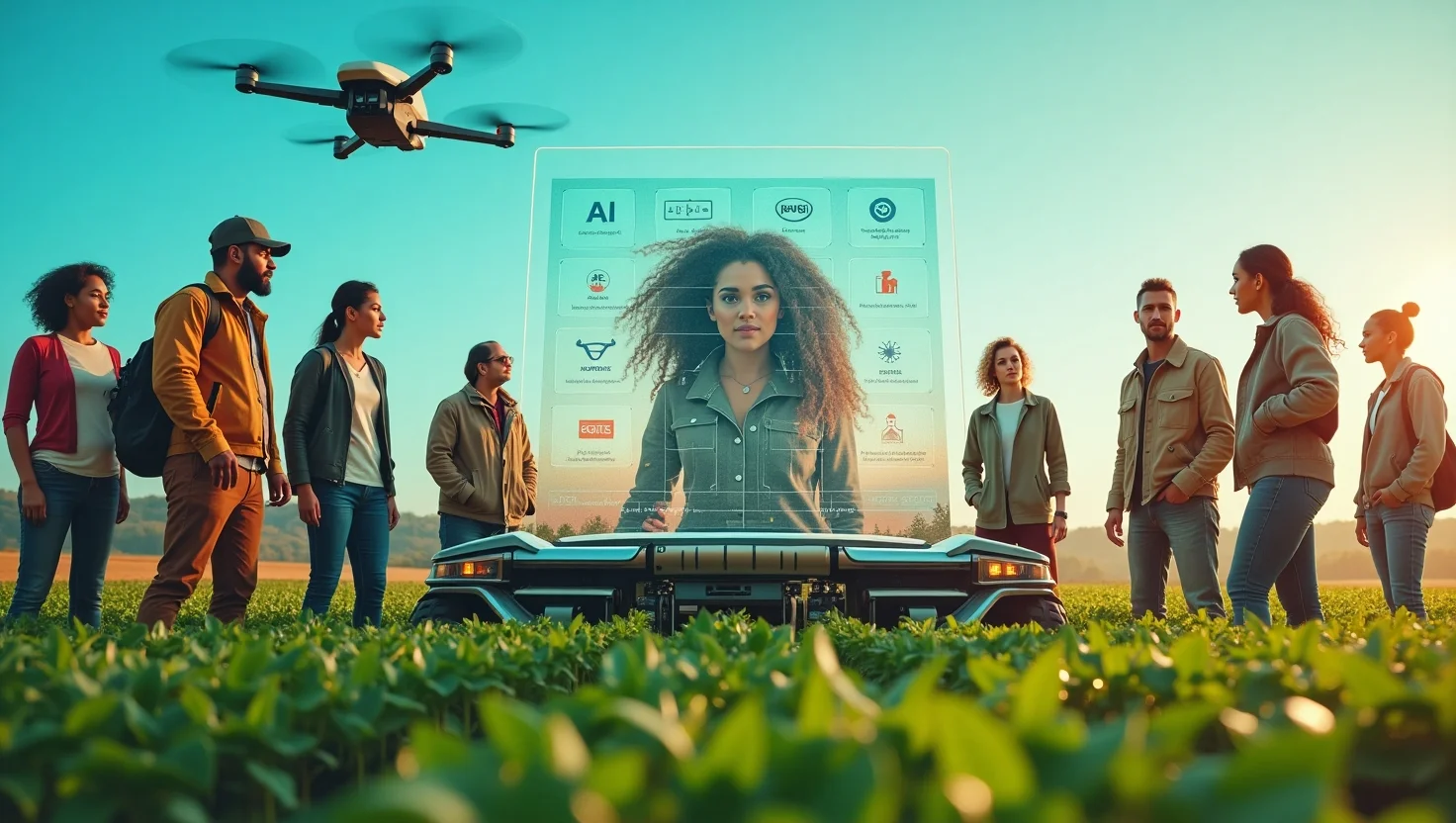
1. Introduction:
Farming in the United States is undergoing a seismic shift, fueled by the accelerating rise of artificial intelligence (AI). As traditional agriculture faces challenges like labor shortages, unpredictable weather, and rising input costs, innovative AI farming startups are stepping in with smart, data-driven solutions. From AI-powered farm tools to predictive crop analytics, these ventures are redefining how food is grown, monitored, and harvested across the country.
According to market forecasts, the AI in agriculture industry is projected to exceed $4 billion globally by 2026. This rapid growth is largely driven by U.S.-based startups focused on agtech innovation, precision farming, and sustainability. These companies aren’t just disrupting the status quo, they’re building the blueprint for the farm of the future.
In this article, we spotlight the top AI farming startup in USA to watch in 2025. Each has demonstrated innovation, scalability, and real-world impact, making them strong contenders in a fast-evolving market. Whether you’re an investor, a farmer seeking smarter solutions, or simply curious about emerging technologies, this list will help you understand where agtech is headed, and who’s leading the charge.
2. What Makes an AI Farming Startup in USA Worth Watching?
Not every AI startup in agriculture is built to last. What sets the top players apart is a mix of innovation, scalability, and real-world application. The best AI farming startups are solving urgent agricultural problems with precision agriculture tools and smart farming technologies that help farmers boost productivity while reducing costs and environmental impact.
A key trait is their ability to offer data-driven farming solutions. Startups that successfully integrate AI with machine learning, computer vision, and IoT devices can deliver real-time insights on soil health, crop performance, and weather patterns. These insights enable more accurate planting, fertilization, and harvesting strategies, which are crucial for farm efficiency.
Another factor is adaptability. Whether it’s through autonomous tractors, AI farm solutions for irrigation, or pest detection systems, the most promising startups are continuously refining their technologies to fit diverse farming needs, from large-scale commercial operations to smallholder farms.
Finally, startups worth watching typically have strong funding, strategic partnerships, or academic backing. These elements help accelerate product development and market penetration, especially in a competitive agtech landscape.
As the demand for sustainable and efficient farming grows, the startups leading in AI innovation are poised to shape the future of agriculture in the U.S. and beyond.
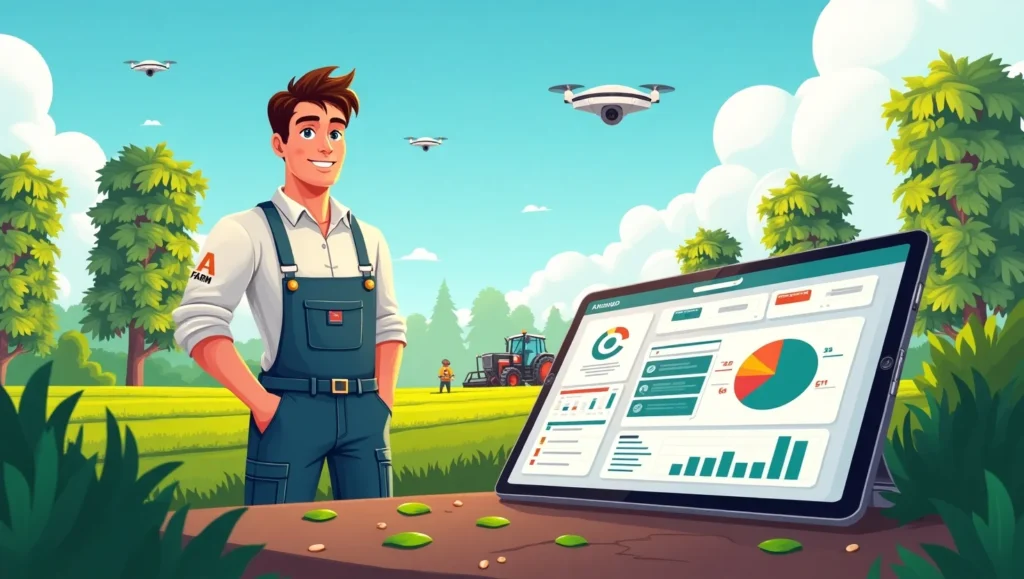
3. Top 10 AI Farming Startups to Watch in 2025
The U.S. is home to some of the most groundbreaking AI agriculture companies, and 2025 is shaping up to be a pivotal year for many of them. Here are 10 emerging agtech startups leading the charge with disruptive technologies and real-world impact:
- Taranis – Uses AI and aerial imagery to detect crop threats at the leaf level.
- Ceres Imaging – Offers aerial spectral imagery and machine learning for irrigation and nutrient optimization.
- FarmWise – Builds autonomous weeding robots to reduce herbicide use and labor costs.
- Augmenta – Delivers real-time crop input application using AI-powered retrofitting systems.
- Bear Flag Robotics – Specializes in autonomous tractor solutions for large-scale farming.
- Plenty – Combines vertical farming with AI to optimize plant growth year-round.
- Blue River Technology – Acquired by John Deere, known for its AI-based “See & Spray” system.
- CropX – Offers soil data analytics with sensor-based AI platforms.
- Carbon Robotics – Develops laser-weeding robots driven by computer vision.
- Agremo – Provides drone-based crop analysis using AI algorithms.
These startups are setting benchmarks for AI-driven innovation in farming, delivering the best AI solutions for farmers across crop monitoring, automation, and resource efficiency.
4. Trends Driving AI in U.S. Agriculture
The rapid rise of AI in precision farming isn’t happening in isolation. Several key trends are shaping how smart farming solutions are developed and adopted across the United States. At the forefront is the growing need for sustainability. As climate change disrupts traditional farming cycles, AI offers predictive tools to manage water use, forecast weather events, and minimize waste.
Another major driver is labor shortage. With fewer skilled workers entering agriculture, AI agricultural trends like robotics and automation are becoming essential. Startups are responding by creating autonomous equipment and decision-support systems that can handle everything from planting to pest control with minimal human input.
Additionally, the digitization of farmland is unlocking new layers of value. With the help of AI, farmers can now analyze massive amounts of data, from soil conditions to satellite imagery, to make more accurate decisions in real time. This trend is pushing agtech toward a data-first future.
Government funding and venture capital are also fueling innovation. Support from USDA grants and tech investors alike is fast-tracking AI adoption across the sector.
Together, these trends reflect a broader shift toward smarter, more resilient farming practices, positioning AI as a core driver in the future of agtech in the U.S.
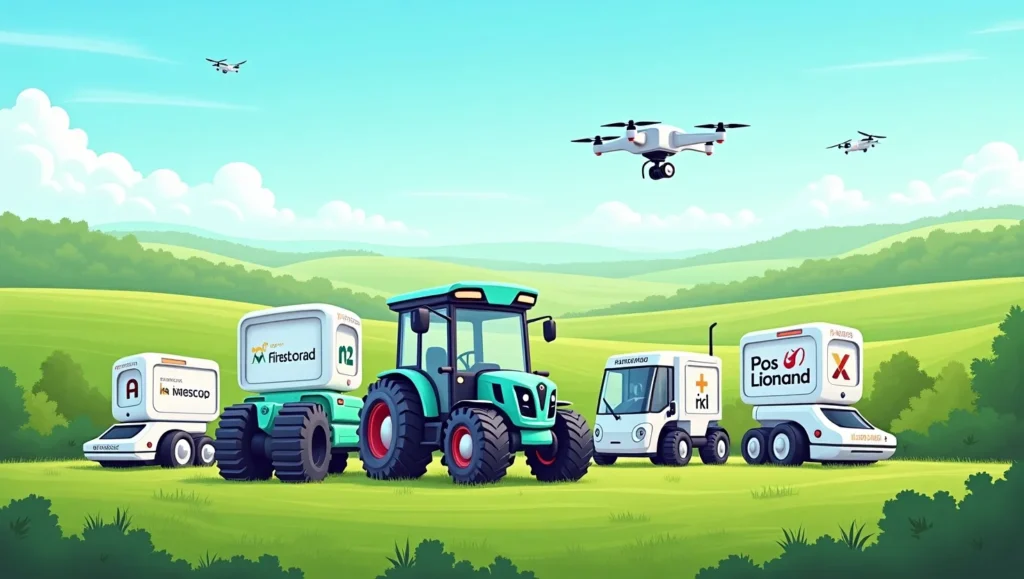
5. Challenges These Startups Face
Despite the exciting potential of AI implementation in farming, startups in this space face significant hurdles. One of the primary challenges is scalability. Many emerging agtech startups begin with promising pilot programs, but scaling AI technologies across diverse farm sizes, crops, and geographies remains a major obstacle.
Another roadblock is the reluctance among farmers to adopt new tech. High costs, lack of technical knowledge, and skepticism toward automation contribute to slow adoption rates. These tech adoption barriers can limit a startup’s market penetration and delay return on investment.
In addition, regulatory hurdles in agriculture, such as data privacy laws, pesticide regulations, and safety certifications, can slow down deployment. Navigating this complex landscape requires both legal expertise and significant capital.
Moreover, AI systems require large volumes of quality data to function effectively. Many farms lack the digital infrastructure to collect and manage this data, hindering AI accuracy and usefulness.
Finally, funding isn’t always guaranteed. While the sector is hot, economic downturns or changing investor interests can abruptly dry up capital, stalling even the most promising ventures.
Overcoming these challenges will require not only innovation but also strong collaboration with farmers, policymakers, and tech partners to ensure AI’s long-term success in U.S. agriculture.
6. Conclusion & Call to Action
As we look ahead to 2025, it’s clear that the AI farming future is no longer just a concept, it’s an evolving reality. The U.S. is becoming a global hub for smart agriculture, with startups at the forefront of solving long-standing challenges through AI. From autonomous machinery to predictive analytics, these innovations are not only improving productivity but also promoting sustainability and resilience in farming systems.
The ten startups highlighted in this article are leading this transformation, offering AI-driven farming solutions that empower both large-scale operations and smaller family farms. They’re setting the benchmark for what’s possible in precision agriculture, automation, and data-driven decision-making.
For investors, this space offers promising agtech investment opportunities. For farmers, it’s a chance to adopt tools that deliver real results in yield, efficiency, and environmental impact. And for agtech enthusiasts and policymakers, it’s a sector worth watching, and supporting.
If you’re looking to stay ahead in the agriculture space or seeking insights into the next big innovation, keeping tabs on these startups is a smart move.
Explore more on how AI is reshaping farming on our blog and discover tools that can help you lead the change in your own field.
FAQs:
Q1. What are the most promising AI farming startups in the U.S. for 2025?
Answer: Some of the most promising AI farming startups to watch in 2025 include FarmWise, Taranis, Ceres Imaging, Plenty, and Carbon Robotics. These companies are leading innovation in areas like autonomous machinery, precision imaging, and climate-resilient farming.
Q2. How is artificial intelligence transforming agriculture in the United States?
Answer: AI is helping farmers increase crop yields, reduce water usage, detect pests early, and automate repetitive tasks through robotics and data analytics, making U.S. agriculture more efficient and sustainable.
Q3. What types of AI technologies are used by agtech startups?
Answer: Common AI technologies include machine learning, computer vision, drone analytics, robotics, and IoT sensors. These tools are used for precision irrigation, crop monitoring, soil analysis, and autonomous fieldwork.
Q4. Are there any investment opportunities in AI-driven agriculture?
Answer: Yes, AI farming is a growing sector attracting venture capital and institutional investors. Startups like Plenty and Iron Ox have received significant funding, indicating a strong future for agtech investment opportunities.
Q5. What challenges do AI farming startups face in the U.S.?
Answer: Key challenges include high implementation costs, data infrastructure gaps, scalability issues, farmer adoption resistance, and navigating complex agricultural regulations.
Related Articles
Crop Management
Can AI Predict Market Prices for Farmers? Here’s What You Need to Know
1. Introduction: Agricultural markets are notoriously unpredictable. One season, a bumper crop...
Crop Management
AI-Powered Crop Spraying Drones: Precision Agriculture in Action
1. Introduction: Farming has always been a race against time, pests, and...
Crop Management
Top 5 Ways U.S. Farmers Are Using AI Drones to Boost Yields in 2025
1. Introduction: In 2025, the American agricultural landscape is undergoing a transformation...
Crop Management
Why More American Farmers Are Adopting AI in 2025
1. Introduction: In 2025, the American agricultural landscape is undergoing a rapid...
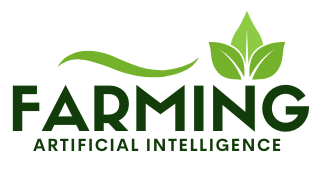
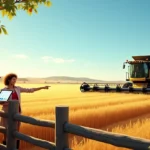
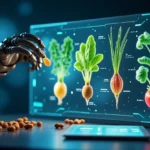
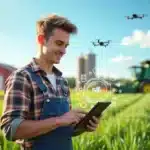

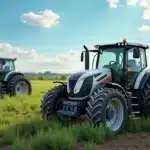

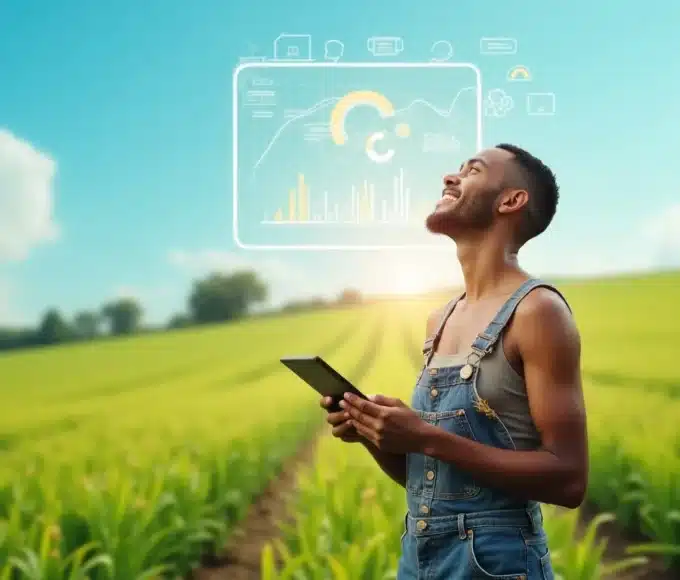
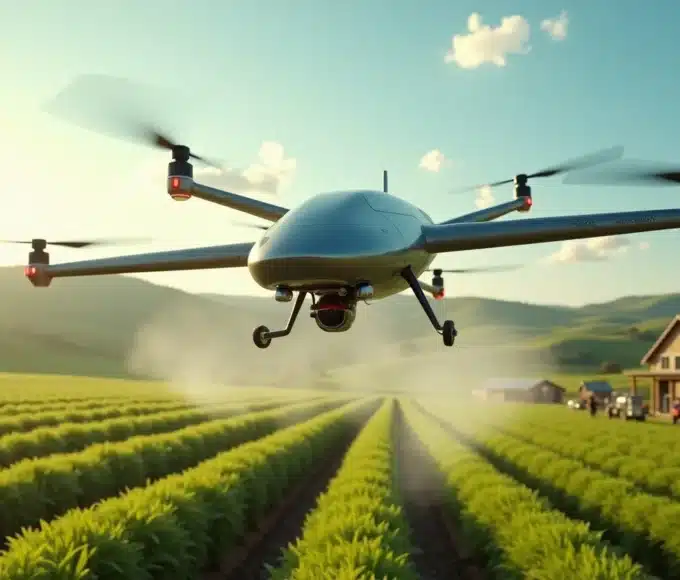
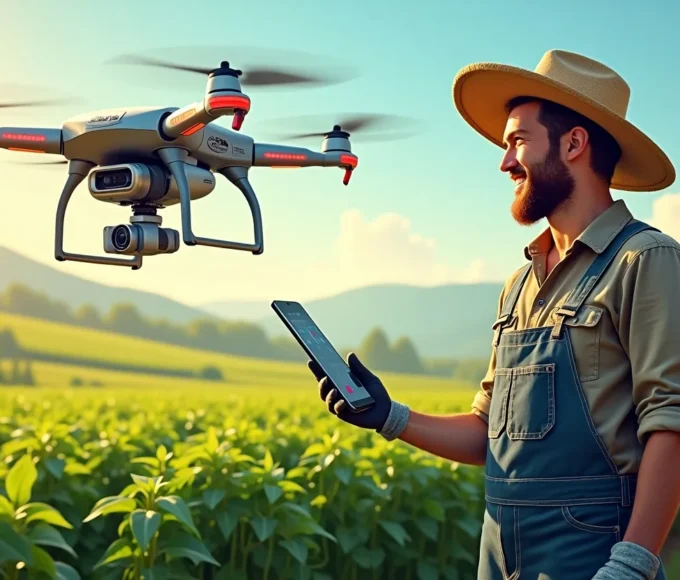
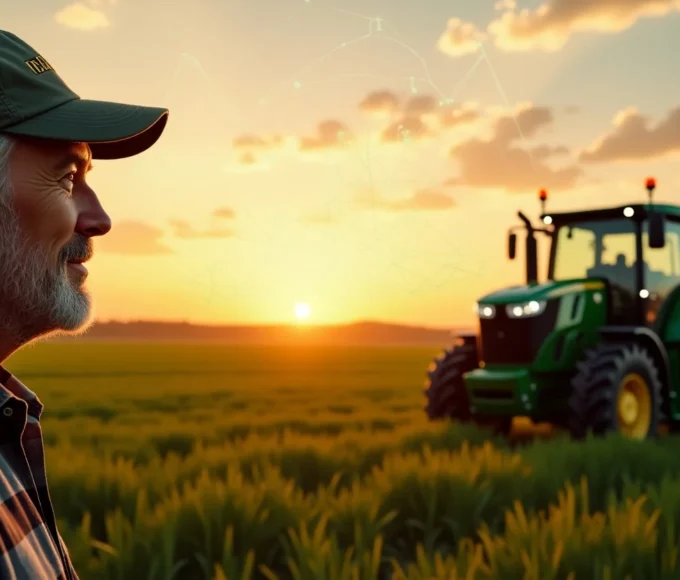
Leave a comment